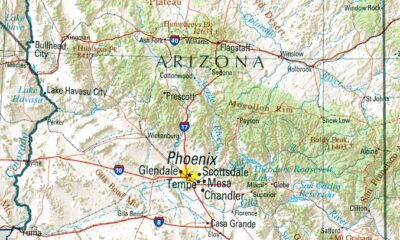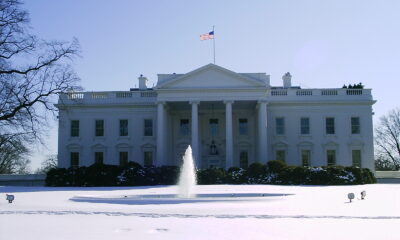Constitution
Schiff, Garvey Bat Away Attacks in Feisty Calif. Senate Debate
Steve Garvey and Adam Schiff faced each other in debate as they contend for Dianne Feinstein’s old Senate seat.
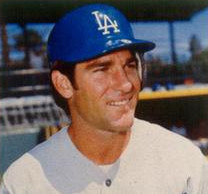
Baseball great Steve Garvey didn’t need a home run to remain competitive in the California Senate primary.
A base hit would have been enough to show voters the former first baseman and All-Star slugger for the Los Angeles Dodgers could show up and play the political game in the big leagues. And with that low bar, Garvey largely succeeded.
While still a political neophyte who could sharpen his attack skills, Garvey didn’t foul out in his first appearance on a political debate stage in Los Angeles Monday night. He got pummeled by all three Democrats on the stage, but the former first baseman stayed in the game, and, like his reputation years ago on the baseball diamond, stood resolutely in the batter’s box and fielded his position steadily with little flash or fluster.
Entering the debate, Garvey was an underdog despite his Southern California celebrity status as a baseball legend. Back in 1982, he helped the Dodgers win a World Series and went on to play four years with the Padres, leading the team to their first National League pennant in 1984.
Garvey is running as a Republican in a state where the Grand Old Party registrations have dwindled to nearly half those signing with the Democrats. Republicans now make up 23.6% of the California electorate compared to Democrats’ 46.9% and the 22.5% who say they are independent.
His three opponents to fill the open seat vacated by the late Democratic Sen. Dianne Feinstein are well-established Democratic politicians: Reps. Adam Schiff, Katie Porter, and Barbara Lee.
Yet before the debate, the looming question was whether Garvey’s wildcard candidacy could bump one of the Democrats off the November ballot in California’s March 5 primary. California’s jungle primary rules allow the two top vote-getters to move on to compete in the general election.
Recent polls show Schiff in the lead, Garvey surging to second with Porter biting at his heels, and Lee, the most progressive of the three Democrats, coming in last in single digits. Garvey still would face long odds to win in November in such a solidly blue state. But finishing in the top two would give him a chance to make a broader appeal to Republicans and independents, many of whom are deeply concerned about the state’s spiking property crime rates, the soaring cost of living, and failures in reducing homelessness and drug overdoses.
With Garvey’s stock rising and threatening Porter’s second-place status, the knives came out during the one-and-a-half hour slug-fest, which took place on the University of Southern California’s campus and was co-hosted by Fox11 and Politico.
The three Democrats seized on Garvey’s refusal to say whether he would support Donald Trump, the likely 2024 Republican presidential nominee headed for a lopsided loss in the heavily Democratic state. Garvey remains mum in the primary despite voting for the former president in 2016 and 2020.
“What more do you need to see of what he’s done to be able to say that you will not support him?” Schiff asked after boasting of taking on Trump during his first term and labeling him a “dictator” and “the gravest threat to democracy in our history.”
Garvey stood by his two previous votes for Trump in 2016 and 2020, though he refused to be pinned down on how he would vote in the 2024 contest.
“Both times, he was the best person for the job. Economists say that he did an exceptional job for people … created jobs for minorities, more than any [president] in history,” Garvey said.
“What they say is true: Once a dodger, always a dodger,” Porter retorted, in a canned but effective line referring to his time as a Los Angeles Dodger. “This is not the minor leagues. Who will you vote for?”
Lee angrily interjected with her own metaphor. “This is not a game,” she sneered.
But Garvey remained calm, appearing slightly amused but not overly defensive. “I love how I’ve stimulated the baseball terms with everybody,” he said with a chuckle.
When Garvey resisted answering, countering that the Democrats were trying to play “identity politics” and pin the MAGA label on him, Porter insisted on an answer.
“As your own man, what is your decision?” Porter pressed.
Garvey had another ready response.
“You’re banging on that trash can just like the Astros did a few years ago,” he replied. After the exchange, Garvey’s campaign Twitter account quickly sent out a cartoonish rendition of Porter angrily banging on a trash can lid.
Some of the audience erupted in boos but it wasn’t clear to whom they were directing their jeers. The reference was to one of the biggest baseball scandals in recent history. In 2017, the Astros stole signs electronically during the World Series, relaying the signs from a center field camera to a TV in the tunnel between the dugout and clubhouse. Someone would then drum on a trash can to alert the hitter to what pitch was being thrown.
Porter had the most to gain and lose last night and accordingly threw the most brushback pitches at Garvey, although she often appeared annoyed at having to contend with a Republican on the stage instead of jousting on more familiar liberal ground.
Trying to strike a contrast with Schiff, Porter cast herself as a consumer rights defender who eschews earmarks and corporate PAC money. When Schiff mentioned that he prosecuted oil companies before coming to Congress, she shot back: “But when he got to Congress, he cashed checks from companies like BP – from fossil fuel companies.”
Clearly irritated, Schiff recalled that when he previously gave Porter campaign funds for her reelection, she didn’t mention the oil money.
“All I heard was, ‘Thank you,’” he said.
Throughout the debate, Garvey was often vague but never grew rattled, coming across as cool and reasonable, often disagreeing in a gentle, chiding way reminiscent of Ronald Reagan.
Indeed, Garvey named the iconic former Californian and Hollywood actor who went on to become a two-term president as the person who most influenced his life beyond his parents. Reagan, he said, carried “the torch for democracy around the world.”
“And when he and Tip O’Neill came together, that was an example of what all politicians should do for the sake of the country – Democrats or Republicans coming together for the good of the country,” Garvey said.
So far during the campaign, Garvey has been short on specific political prescriptions for California’s myriad problems, tending to present himself as a congenial, consensus-oriented candidate. His campaign stresses his willingness to listen to Californians’ problems, showing videos and photos of him talking baseball with the homeless, standing shoulder to shoulder with police, walking alongside farmers, and meeting with Jewish leaders.
But Schiff and Porter tried to puncture Garvey’s attempt to cultivate a center-right, compassionate conservative image. When the topic turned to abortion, Garvey pledged to honor the majority of voters supporting abortion rights in the state even though he is personally pro-life. Porter reminded the audience that the prominent members of the Republican Party have pledged to pass a nationwide abortion ban if they win the president and majority control of the Senate.
“So, Mr. Garvey needs to be clear about where he is on this, and actually all the other issues,” she said before pivoting to hit Schiff on his abortion claims. She noted that Schiff listed abortion as an “accomplishment” on his website despite the Supreme Court’s recent overturning of its 1976 Roe v. Wade decision, which struck down prohibitions on abortion nationwide.
“As a mother of a young daughter, I do not feel like abortion rights have been accomplished – not in the year when millions of Americans have lost abortion,” she said.
Lee then shared a very personal reason for her support for maintaining legal abortions in every state. Before the 1976 decision by the high court, she made the difficult decision with her mother to have an abortion, and the pair traveled from California to Texas to attain one.
“I was terrified because I knew it was illegal in California, and so reproductive freedom for all is important,” she said. “I intend to codify the women’s right to protect abortion.”
Schiff quickly agreed and then upped the ante, calling for expanding the number of seats on the Supreme Court and term limits for its justices. The 12-term congressman then accused Garvey of taking a position that allowed him to respect the right of states to refuse abortion care to millions of Americans. Garvey insisted, however, that he wouldn’t vote for a federal abortion ban.
Garvey then reminded viewers that last year, the GOP-controlled House had censured Schiff for “lying” that Trump was involved in colluding with Russians. The censure language accused Schiff of engaging in “falsehoods, misrepresentations, and abuses of sensitive information” as he sought to dig up connections between Trump and Russia.
“I was censured for standing up to a corrupt president,” Schiff replied.
“Sir, you lied to 300 million people, and you can’t take that back,” Garvey replied.
Garvey also called out all three Democrats for doing nothing to fix the country’s broken border policies while tolerating a record number of illegal immigrants crossing into the country. “Where have you all been these three, four years?” Garvey asked. “Thousands of immigrants are coming across the border today … and bringing with them drugs and cartels and human trafficking. That’s the truth.”
When it comes to California’s increasing homeless numbers despite the state’s $20 billion outlay to try to solve the problem over the past five years, Garvey called for a state audit of where the money went. All three of his opponents blamed the homelessness scourge on a lack of affordable housing and pledged to secure more federal money to help fix the problem.
“I brought back millions for affordable housing in California [as a House member], and in the U.S. Senate, I will bring back billions to California to build housing,” Schiff pledged.
While Lee deemed affordable housing a “basic human right,” Porter blamed California’s homelessness problem “directly” on Washington. “Our homeless is a direct result of Washington’s failure decade after decade to write a polity that is about us, that is about families, and is about people,” she said.
Perhaps the most considerable contrasts among the candidates, however, came when all were asked their position on the Israel-Hamas war.
Lee stood by her decision on Oct. 8 to call for an immediate ceasefire, less than 24 hours after the Hamas attacks on Israel that killed 1,200 civilians, including women, the elderly, and children.
“The only way Israel is going to be secure is through a permanent ceasefire,” she said while calling for a “two-state solution” endgame. “Killing 25,000 civilians [in Gaza] is catastrophic – it will never lead to peace for the Israelis or the Palestinians,” she added.
Schiff, who is Jewish, said he ultimately supports a two-state solution but argued for Israel’s right to defend itself and prevent Hamas from continuing its rule of Gaza.
“I don’t know if you can ask any nation to cease fire when their people are being held by a terrorist organization,” he remarked.
Porter said she, too, has called for a permanent ceasefire as well as the release of all hostages and the provision of resources to rebuild Gaza. She described such a compromise as a way to ensure that “Israel is secure and [provide] a free state for Palestinians where they can thrive.”
When it came time for Garvey to weigh in, the Republican offered unflinching support for Israel.
“I stand for Israel yesterday, today, and tomorrow for whatever their needs are,” he said. “That day was atrocious … we have to give Israel the opportunity to fulfill their sovereignty, to fight back.”
Garvey called it “naïve” to think the U.S. can pressure Israel into accepting a ceasefire. If an ally had approached the U.S. after the 9/11 attacks and prodded the president for a ceasefire, Garvey said, “We would have looked them in the eye and said, ‘Thank you for being our ally, but we must control our destiny and our sovereignty.’”
He then flatly predicted that a two-state solution wouldn’t happen “in our lifetime.”
“Maybe the next generation,” he offered.
This article was originally published by RealClearPolitics and made available via RealClearWire.
Susan Crabtree is a political correspondent for RealClearPolitics. She previously served as a senior writer for theWashingtonFree Beacon, and spent five years asa White House Correspondent for theWashington Examiner.
-
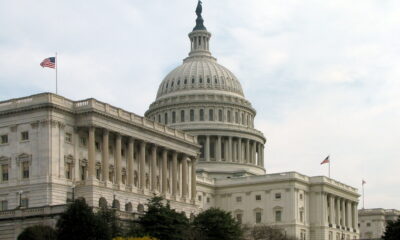
 Civilization5 days ago
Civilization5 days agoEnd the Filibuster – Or Stop Pretending To Govern
-

 Civilization4 days ago
Civilization4 days agoA Better U.S. Strategy for Greenland Than Annexation
-

 Education4 days ago
Education4 days agoIgnoring the Science: The Curious Case of Cell Phone Bans
-

 Executive3 days ago
Executive3 days agoWaste of the Day: Utah University Trustees Don’t Know Their Job
-

 Education5 days ago
Education5 days agoA Solid Core Enlivens Free Speech and Viewpoint Diversity
-

 Executive4 days ago
Executive4 days agoWaste of the Day: $8 Water Filter Costs the Government $156
-
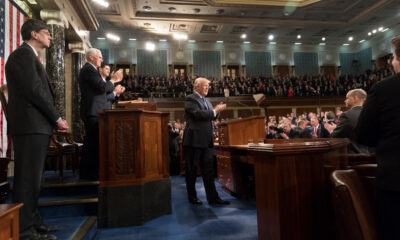
 Civilization3 days ago
Civilization3 days agoTrump’s Longest Speech, His Shortest Margin for Error
-

 Executive2 days ago
Executive2 days agoWaste of the Day Throwback Thursday – USDA Advertised Caviar





